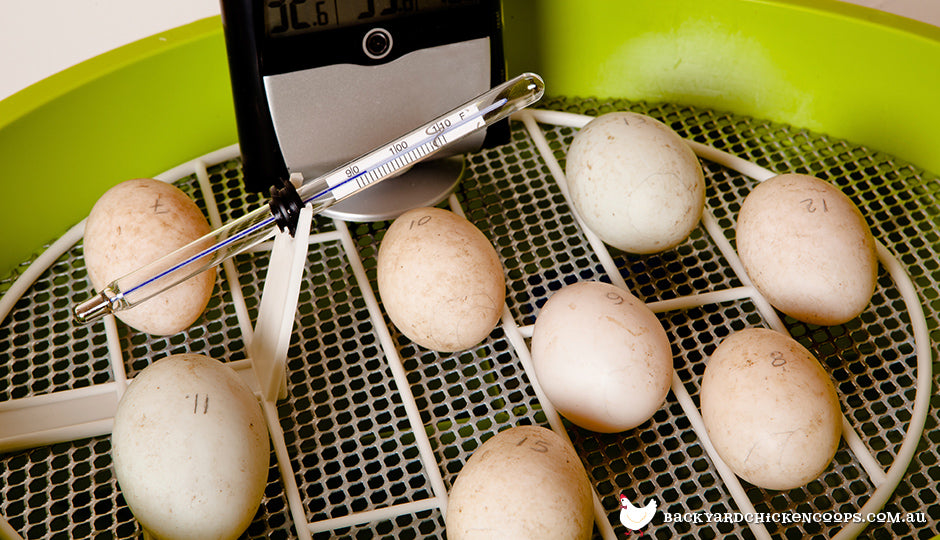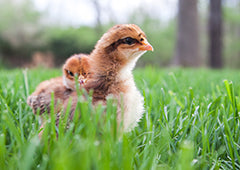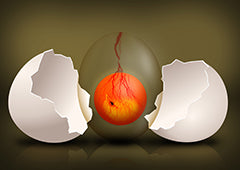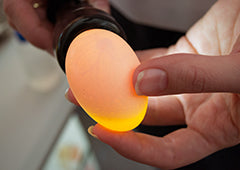Unfortunately, not all eggs in an incubator will survive the incubation process - no matter how careful we are! There will be one or more eggs that will go ‘bad’, and once that happens, they must be removed from the incubator immediately. Spotting a bad egg early is crucial to ensure the health of the remaining developing eggs.
Here’s how to spot a bad egg, and why early detection is so important!
Why do eggs go bad?
If an egg has been born with bacteria anywhere inside the shell, then generally this will turn the egg ‘bad’. The bacteria grows, contaminates the embryo (stopping it from growing) and turns the contents of the eggs into a nasty mix that you don’t want in your incubator!
Why is it important to get it out of the incubator?
If you’re undertaking the joyous process of incubating, then its important to look out for any bad eggs - that, if kept in the incubator, can compromise the health of the remaining eggs.
Bad eggs, if they continue to be incubated, are at risk of exploding (due to a buildup of gas). If this happens, the other healthy eggs in the incubator are put at high risk of being contaminated, therefore stopping embryo growth and going bad themselves.
Warning signs that an egg has gone bad
There are a number of warning signs you can look out for to spot a bad egg in the incubator.
- Smell - bad eggs have a very nasty smell that is not easily missed!
- The red blood ring - if you’re candling the eggs and detect a red ring of blood around the embryo, unfortunately the embryo has deceased and should be removed immediately from the incubator.
- Oozing substance - sometimes bad eggs will begin to ooze a honey/light brown coloured substance. This is a very bad sign, and must be taken out of the incubator immediately as it may be prone to explode quickly!
Don’t let this dispel you from incubating - bad eggs are easy to detect through candling or odour (check out our All About Incubation article for more info on candling), and if you act quickly and remove them they will not affect the healthy eggs from developing into beautiful baby chickens. Unfortunately, despite your best efforts, not all of the eggs in an incubator will develop - this is just nature’s way. But, consistently candling and detecting bad eggs ensures that you’ll have fluffy new arrivals after 21 days!
If you're still a little unclear on the right way to incubate, check out our Top Tips for Incubating - we've done the process ourselves and absolutely loved it!
We sell incubators that do all the heavy lifting for you - and help you give your fertilized eggs the best chance of successfully hatching. Our incubators turn the eggs, monitor humidity and temperature and will sound an alarm if any levels aren’t as they should be - whilst providing optimum air circulation. Incubation is an incredibly rewarding process, ask any hatch-a-holic!


















